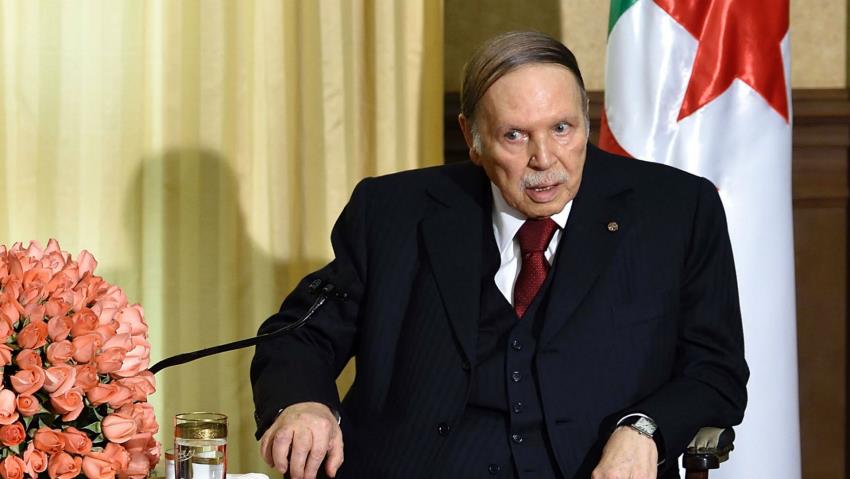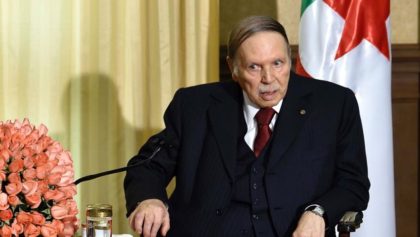
Algeria’s Ghost President
 The failing health of Algerian President Abdelaziz Bouteflika and the secrecy shrouding his successor continue to raise concern in the national and international press regarding the future of a country heavily battered by the slump in oil prices.
The failing health of Algerian President Abdelaziz Bouteflika and the secrecy shrouding his successor continue to raise concern in the national and international press regarding the future of a country heavily battered by the slump in oil prices.
In the latest of a series of analyses in the French media, weekly paper, Le Point, has published an article entitled “an investigation about the most mysterious country in the globe,” exploring facets of regime opacity at a time when the country’s economy and social peace and stability are jeopardized by depleting state revenues.
The paper notes that Algeria’s stability has long rested on the generous handouts of the oil mantra, which the county amassed during the era of expensive oil and squandered afterwards.
The power vacuum left by President Bouteflika, whose public appearances and speeches are a thing of the past, prompted the paper to ask the legitimate question of “who governs Algeria?”
Bouteflika’s capacity to govern has been seriously diminished since he suffered a stroke in 2013 leaving him on a wheelchair unable to speak intelligibly. His health condition prompted to cancel visits to his country by several Heads of states.
Unable to make public appearances, the president’s health condition triggered speculations and increased the power struggle amidst a deteriorating economic situation, adds le Point, noting that his brother Said is pulling the strings of his ailing brother.
Maintaining Bouteflika despite his frail health is a time-buying measure for his brother Said and his allies within the Algerian regime to take power. Indeed, all indicators show that an alliance has been forged between Said and the military leaders as an interest group bringing together the army and pro-regime businessmen.
The interests of the Military were actually safeguarded in the draft bill for 2018, which continues to earmark 25%, i.e. 10 billion dollars of the state’s budget to the army despite the financial and economic crisis that prompted the government to impose taxes as part of austerity measures that threaten to erode a fragile social peace.
As it continues to spend lavishly on the military, Algeria turns a blind eye to sectors on which the stability of the country rests, namely employment. Only 25 billion dollars were earmarked in 2011, before the oil price drop, to the national agency for the promotion of employment in a country where unemployment rate soared to 26.7%, the paper notes.
As it heads straight to insolvency, Algeria insists on shunning structural reforms that break away with the rentier economy model and the top down distribution of revenues to buy social peace. Meanwhile, Algeria’s combustible material: social strife, unemployment, security threats and extremism, are piling up against the backdrop of worsening economic conditions.
